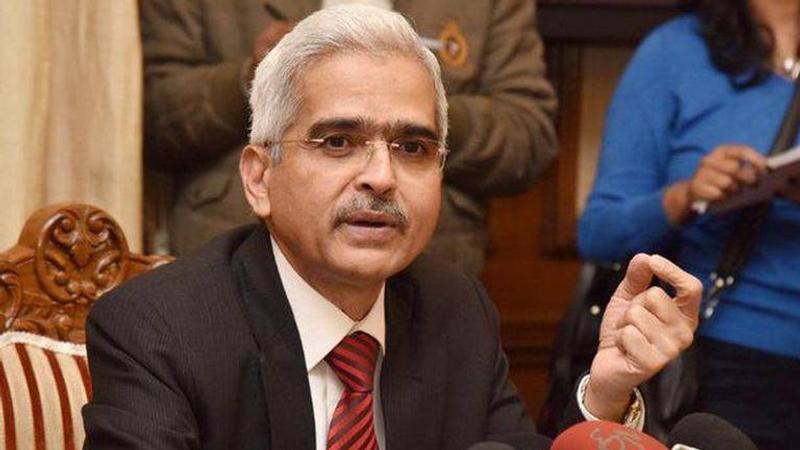Published 23:08 IST, February 6th 2020
Experts hail RBI measures to boost economy, improve money supply
Economists and financial experts have welcomed RBI's widely expected status quo on repo rate, and other announcements to spur economic growth

Economists and financial experts have welcomed RBI's widely expected status quo on repo rate, and other announcements to spur economic growth and ensure money supplies effectively.
The RBI on Thursday kept the key policy rate unchanged at 5.15 per cent. This follows a cumulative 135 basis points (bps) cut in repo rate since February to December 2019.
The six-member Monetary Policy Committee (MPC) headed by RBI Governor Shaktikanta Das unanimously decided to keep the repo rate unchanged.
Bank of India MD and CEO A K Das termed the RBI policy quite progressive and forward looking. "Notwithstanding unchanged policy rates, introduction of Term Repo opens up ways to transmit the signal rate changes," he said.
"Measures like DCCO extension for realty, MSME window expansion for restructuring and CRR exemption for incremental funding to key segments are growth oriented and promise to provide the much needed impetus to bank lending," Das said.
According to Rajni Thakur, Economist, RBL Bank, MPC's decision was on expected lines.
"The changes in development and regulatory policies however were a positive surprise and could potentially turn out to be a big support to the troubled sectors in the economy," Thakur said.
Specific announcements in terms of CRR relief or long-term durable liquidity for banks push the overall credit availability in the financial system. Whether these steps manage to improve demand conditions is another question all together, she added.
The RBI has announced term repurchase agreements (repos) of one-year and three-year tenors of appropriate sizes for a total amount of Rs 1 lakh crore at the policy repo rate, from the fortnight beginning February 15.
"It is an effort to ensure better monetary policy transmission. It will enable banks to reduce their lending rates," RBI Governor Das told reporters in the post policy conference.
Upasna Bhardwaj, Economist, Kotak Mahindra Bank said very aptly, MPC has addressed the growth concerns through pushing transmission via tweaking the liquidity framework, providing long term liquidity operations and incentivising credit to select sectors.
"We expect these measures to aid transmission with the shorter end of the yield curve expected to rally meaningfully. These measures should help availability of funds at lower costs and aid sectors in stress," Bhardwaj said.
ICRA Economist Aditi Nayar said: "The tone of the MPC's statement was rather dovish, especially given the reiteration that policy space is available for future action.
"The accommodative stance will be maintained for as long as necessary to revive growth, in spite of the headline inflation having breached the upper threshold of the MPC's medium term target."
The RBI also raised upwards the retail inflation projection for last quarter of this fiscal to 6.5 per cent citing high input cost for milk and pulses besides costlier crude oil prices amid rising geo-political tensions.
Nayar said the statement suggests the near certainty of at least one additional rate cut, even if its magnitude is modest, the timing of which will depend on how quickly inflation appears to be reverting towards 4 per cent.
Umesh Revankar, MD and CEO - Shriram Transport Finance said the attention-grabbing aspect of the policy is marginal improvement in IIP, manufacturing index (PMI) and service index.
These numbers depict beginning of increasing activity though still under wait and watch radar to bring in any further excitement, he said.
"We believe that all the policy decisions along with pro-consumption budget corroborates that there would be better demand from the consumption side. Once that increases, automatically there will be better credit demand," Revankar said.
The expansionary monetary policy stance was necessary and is an assurance that there will be no reversal of easing and that the RBI will not hike rates immediately, opined Rumki Majumdar, Economist, Deloitte India.
Engineering Exports and Promotion Council (EEPC) Chairman Ravi Sehgal said RBI measures to provide one-time restructuring window for advances to MSMEs would help growth revival in the employment-oriented sectors.
MSMEs contribute significantly to the country's exports.
"With global markets being subdued, exporters, particularly those in the SMEs are facing challenges. The RBI measures through loan restructuring and providing CRR incentives to the banks to lend to MSMEs would certainly help the exporting sector," he said.
Ample liquidity with the banks should lead to lowering of interest rates as part of effective transmission of earlier reductions, he added.
Anarock Property Consultants Chairman Anuj Puri said the extension for restructuring of project loans by a year is a major relief to the real estate sector.
It complements many of the previous initiatives by the government in 2019.
"Loans for projects that have been delayed for reasons beyond the control of their promoters have been extended by another one year without downgrading the asset classification. This is a big move and will bring the much-needed relief to the cash-starved real estate sector - and to both developers and HFCs from the liquidity perspective," Puri said.
(Image Credit: PTI)
Updated 23:08 IST, February 6th 2020




